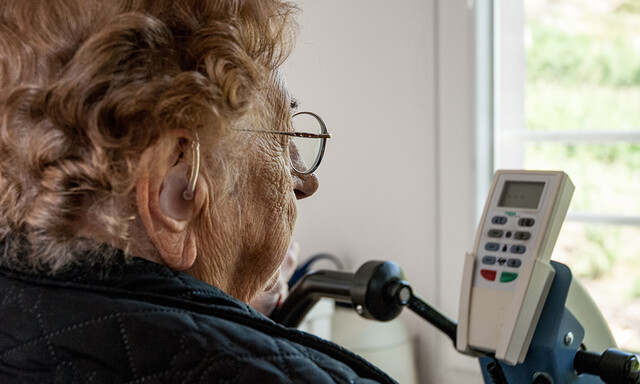
Photo: UBCO
A new study from UBCO investigating the relationship between hearing loss and activity levels has found a link between hearing and healthy aging.
Dr. Kathleen Martin-Ginnis, director of the Centre for Chronic Disease Prevention and Management in the Faculty of Medicine at the University of British Columbia and professor in the School of Health and Exercise Science at the Okanagan Campus of the University of British Columbia, is looking at ways to keep older adults healthy.
The research team wanted to explore the relationship between physical activity levels and hearing loss in older adults, and whether the use of hearing aids makes a difference.
“Understanding that association would enable health professionals to better support older people in maintaining an active lifestyle and allow researchers to focus on studying the impact of hearing interventions,” said Dr Martin-Ginnis.
The researchers looked at data from the U.S. National Health and Aging Survey, which involved more than 500 participants.
Participants, whose average age was 79, wore accelerometers for a week and self-reported vigorous physical activity and walking over the course of a month.
The goal is to investigate the association between physical activity and hearing loss, and between physical activity and hearing aid use.
“We found that older adults with hearing loss were less physically active than adults who could still hear well, and the number of minutes of physical activity they undertook per day decreased as hearing loss progressed,” said Dr Martin-Ginnis.
The data showed that people who wore hearing aids were more likely to report walking for exercise than those who did not use hearing aids.
“Think about the places older adults go to get exercise – the community center, the public pool or walking around their neighborhood. Hearing loss can make it difficult to interact with fitness instructors and staff in these public spaces. Also, not being able to hear what's going on around them can make even moving around their neighborhood scary or dangerous. These factors can limit a person's activity levels.”
Dr Martin-Ginnis said the findings suggest the use of hearing aids may help address the impact of hearing loss on physical activity: “This makes sense – the use of hearing aids may reduce the challenges associated with communicating with people in physical activity settings.”
“We hope that our findings will encourage older people to get regular hearing tests and use hearing aids if they have hearing loss,” says Dr Martin-Ginnis.
The results were recently published in The Journals of Gerontology: Series A.



